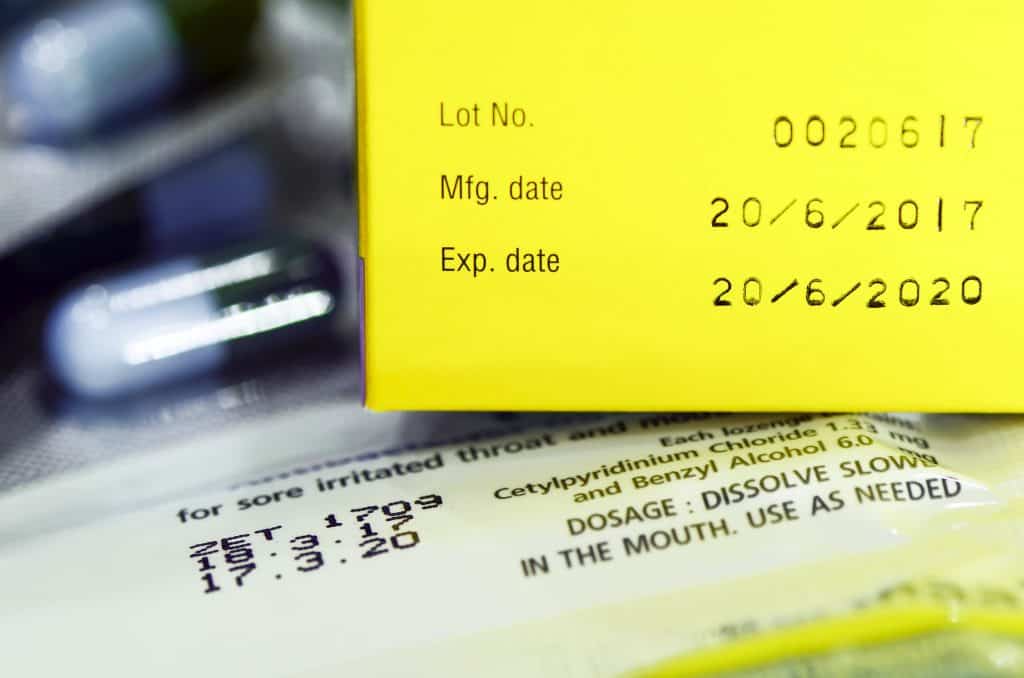Do Medications Expire? Which Ones, When, and What to Do!
Posted by Prescription Hope - See Editorial Guidelines (Last Updated On: Mon Jul 10 2023)
Whether or not medications expire is something often debated among many patients and in many homes. So, do medications expire? Lots of patients throw out expired medications or sometimes hesitate to take them even during unavoidable health situations. As the experts in arranging dispensed drugs, our article will provide a clear guide on if medications really expire and what to do.
Here’s a quick response for you, and then we’ll go into more detail.
Do Medications expire? Many medications do not expire, but they do lose their potency and stability, which varies from one drug to another. Treatment from expired medications may not be fully achieved. With caution, expired medications are not totally unsafe to consume for minor health conditions.

If this sounds vague, that’s because all medications are different. They act differently and have different shelf lives. But let’s explore this a little further, and perhaps we can answer your questions.
Do Medications Expire?
Whether or not medications expire doesn’t have a solid yes or no, but they do have an expiry date. The expiry date on medication is the guarantee that the manufacturer gives on the full potency and safety of drugs.

This means that after the expiry date, medication may or may not show its full effect on the treatment of a medical condition.
Even for legal and liability reasons, pharmaceutical manufacturers specify an expiry date, after which they will not ensure patients the stability of the medications.
Apart from these reasons, by law, all U.S pharmaceutical manufacturers are required to publish or label the expiration dates of all medications before marketing, be it from prescription, over-the-counter (OTC), and dietary (herbal) supplements.
So, the expiration date of a medication is only an assurance the manufacturers have provided on its stability, potency, and effect. Although, in reality, some medicines may give the same or similar potency even after the expiry date has passed.
Usually, one will be able to see the expiry dates mentioned in the medication through different terms such as “Beyond-use,” “Do Not Use After,” or “Discard After.” These are some common terms that are used to specify expiry dates for medications and are required by the Board of Pharmacy in many states.
How Expiry Dates on Medications Are Decided

To find out how long medications can provide its full stability and potency, most pharmaceutical manufacturers conduct a stability test under good manufacturing practices as determined by the Food and Drug Administration (FDA).
Typically, the drug products marketed in the U.S have an expiry date that goes up from one to five years from the time of manufacturing.
However, it’s also important to remember once the medication is opened either by the patients or the health care provider who will supply them; this expiry date cannot be assured completely.
This is because when the medication is exposed to the environment, in effect, the timer has started. From that point forward, its stability and potency can and probably will be gradually affected.
But when left unopened, the shelf life or the potency of the medication may last longer even past the expiry date.
On the other end, most of the pharmaceutical manufacturers specify an expiry date, usually around 2 to 3 years from the date of manufacturing, which is arbitrary.
This means that these medications specified with an arbitrary expiry date can, in reality, have an actual longer life and potency beyond the expiry date.
Why Different Medications Have Different Expiry Dates
Different medications have different dates because the stability of drugs differs based on various external factors.
Things like humidity, light, heat, and even storage conditions affect the stability and potency of medication significantly. The way these factors impact a medicine depends on the sensitivity of the drug, giving the medication varying expiry dates.
This is why pharmacies, nursing homes, and even hospitals throw away billions of dollars of medications each year.

Do Expired Medications Really Lose Their Potency?
Not all medications lose their potency after the expiration date. A research study was conducted to help find out if medications really lose potency after expiration, using an old batch of drugs that were found in the back of a pharmacy. This old stack of drugs included a variety of antihistamines, pain relievers, and diet pills.
Shockingly, the medications still retained potency and stability. Some of these medications, which were at least 40 years past the manufacture date, still retained the required strength.
In line with this, another research study found out that EPI-Pens (used to treat life-threatening allergic reactions) were able to retain around 84 percent of its stability and potency, four years past its expiration.
So, it was suggested that using this medication in an emergency would save a life, rather than avoiding using it as it had past the expiration date.
However, not all medications are safe to use after its expiration, unless tested for their potency or stability. But there are certain medications that by some common-sense measures can be unsafe to use after expiry.
Here’s where we get to the part that may concern the medication you have in mind.
Which Medications Are Unsafe After Their Expiration Date?
- All types of insulin (medications that are used to control blood sugar) are suspected of losing potency and stability after expiry, failing to give its full effect.
- Oral nitroglycerin (NTG) (used for angina-chest pain) is suspected of losing its potency when the bottle is opened.
- Vaccines, biological, or blood products could also be subject to fast degradation of product and potency beyond the expiration date.
- Tetracycline is said to produce a toxic metabolite after its expiration and is not recommended to be used after the date (this is a controversial point among researchers, but we’ve added it to be cautious).
- Biological medications, refrigerated liquids, eye drops, injectables, compounded medications also are not recommended to be used after the expiration.
- Medicines that look old or degraded, often with a faded or pale color beyond their expiry date, where they appear powdery, cloudy, or even crumbling.
- Medications with a strong or unusual smell, medications that have clearly dried up (such as creams or ointments) are not recommended to be used after their expiry date.
Can I Take Expired Medication?
It’s always advisable to take the safest route and, where possible, avoid taking medications that are expired and do not flush medications.
However, providing it’s not a life-threatening disease, such as a minor headache, hay fever, or mild pain, and you have no way to get medications filled otherwise. It’s not entirely unsafe to take such medications. Just keep in mind that the potency of the medication may not be 100% effective.
You can quickly identify if the expired medication has the potency by observing if there’s a relief after taking the medication. If you do not get relief, then it’s more than likely that the strength of the medicine has reduced, rendering it ineffective.
On the other end, if it’s concerning life-threatening diseases, like a heart condition, seizure, or cancer treatment, it’s wise to get a new prescription filled before they expire. As always, it’s recommended to seek your doctor’s advice on whether or not expired medications can be taken when there is no other choice.
We hope this article has been useful in understanding more about expired medications, their potency, which ones to avoid, and when to seek assistance.

To Conclude
This article is not intended to be complete medical guidance. We would, of course, always recommend consulting your doctor before taking any drugs you feel may not be suitable or effective.
ENROLL



